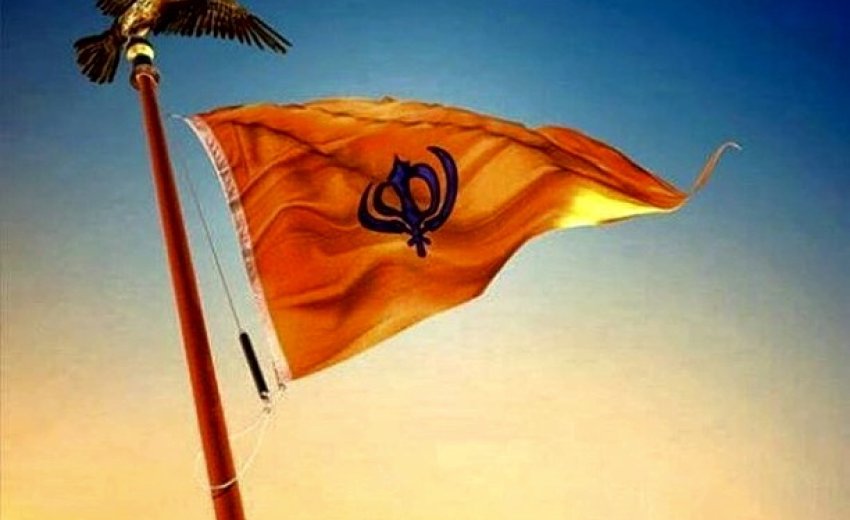
24 years ago, all that mattered was Singh or Kaur.
It didn't matter what jatha you belonged to, whether you ate meat or what you believed about the Dasam Granth. When the mobs broke into your home, found you in an alley or discovered you on a bus or train, they didn't ask how many banis you read in the morning. They didn't really care which slate you voted for in the last Gurdwara election.
On the streets of India in the days after Indira Gandhi's death in 1984, when you and your family were attacked, it was for one reason and one reason alone. You were Sikh.
24 years later, there are many things to ponder and reflect on. Most of these points are raised every year, as they should be. Victims families need to be supported. The planners and perpetrators of these pogroms must be brought to justice. Testimonials must be documented and history must not be forgotten. As the human-rights organization Ensaaf says we need to "End Impunity, Achieve Justice".
However, I think there is one point often overlooked that is even more important for Sikhs around the world. Regardless of your political affiliations or personal level of religious observation, for that short period of time, we were united. The horror, tragedy and scale of what was perpetrated on Sikhs became the common thread between us. As Sikhs, we came together in our pain, grief and suffering. The year 1984 was perhaps the only time in my lifetime we've thought of ourselves as Guru Gobind Singh insisted we should; as ONE panth or community.
However, as grief soon turned to outrage, our unity began to unravel. With responses to the attacks ranging from reconciliation to revolution, Sikhs began to do everything from apologizing for the inconvenience caused to their fellow Indians to a flat-out armed Independence movement in Punjab. Twenty-four years later, its hard to remember the time when Sikhs actually agreed on 1984.
Unfortunately, we've seen this movie before. A community or country faces outside attack, comes together as one, and generates significant international goodwill. Then, rather than collaboratively developing and executing a game plan to fight back, for a variety of internal and external reasons they blow it. They end up in worse shape then ever with their reputation in tatters and without a clear path forward. The US after 9-11 provides the most vivid contemporary example.
Except that in the US you can easily point to one person or administration as the primary cause for this collapse, but where does the blame lie in the Sikhs? Is there one person we can single out? Not really.
More likely, the root cause lies in the combination of self-serving near-sighted Sikh leadership and state involvement in Sikh affairs. The net result was a lack of empowered and sustainable political and religious institutions that could fight the fight on multiple fronts. What we had at the time was already weakened or corrupted, and the task of countering a billion dollar military and propaganda machine proved to be insurmountable. That is why, 24 years later, we are more divided and demoralized than perhaps anytime since Maharaja Ranjit Singh's time.
Where does this lead us? Back to ourselves. The US is putting their hopes and dreams into one person. That is their choice and their culture. The American dream is centered on individual achievement and leadership. Sikhi, on the contrary, believes in decentralized leadership.
Looking back at our history, our biggest challenges have come after periods of centralized authority. Be it, Banda Singh Bahadur, Maharaja Ranjit Singh, or the current political force of the Badal dynasty. While their reigns were obviously different as was their own personal level of faith, that's not the point. When political decision making, and perhaps more importantly fund-raising, is centralized in the Sikh community the consequences are usually negative. In our own towns and cities, we need only to look at what happens when one Gurdwara becomes dominant. The egos of the management committee are barely contained in their turbans.
So the answer relies not in waiting for a Sikh Barack Obama or Superman to come save the day. It means that every Sikh must take responsibility for their panth. Our unity is actually in our diversity. The role of our institutions is not command and control. Its to coordinate and collaborate. We need to tap into the unique resources, talents and leadership potential sitting in each Sikh around the world. We don't need another Nawab Kapoor Singh, we need 25 million Nawab Kapoor Singhs and we need local, national and international Sarbat Khalsa-esque facilitated panthic forums to productively reconcile our interests and efforts. Right now we're all just rowers in a boat paddling in different directions and going nowhere.
Only when we have a way of collectively working together to define and implement a panthic agenda that guarantees 1984 will not happen again, can we look back at that tragic year and say it was not in vain.
- Maple Leaf Sikh

